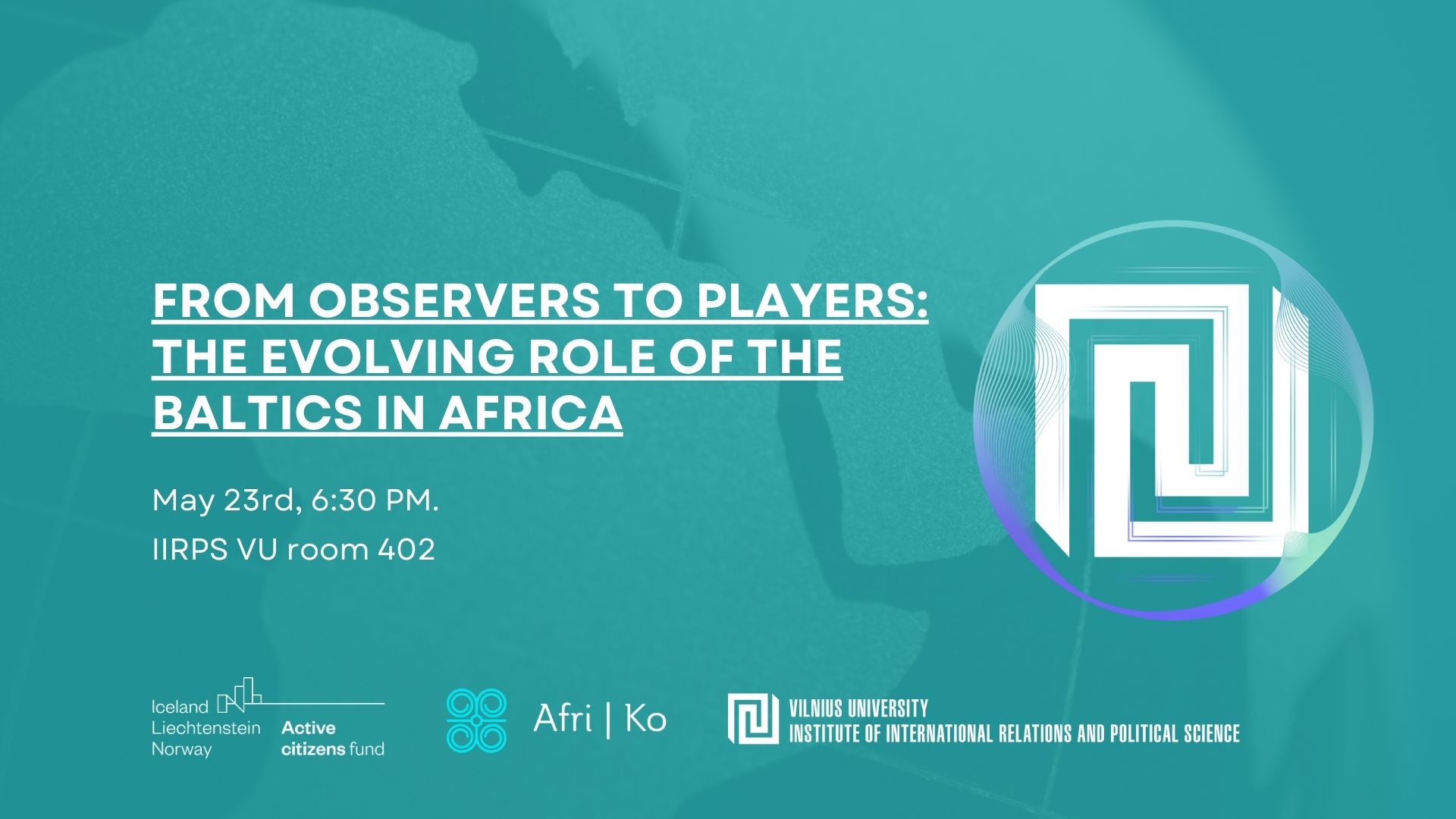Institute of International Relations and Political Science of Vilnius University (IIRPS VU) and research and consultancy centre AfriKo invite you to the discussion “From Observers to Players: The Evolving Role of the Baltics in Africa”. The discussion takes place on the 23rd of May, 6:30 PM, in room 402.
Connection building between Baltic and African regions is still perceived as a marginal and even exoticised topic in the public discourse of the Baltics due to limited previous interactions, lack of knowledge, and stereotypical image of Africa associated with assumed challenges such as poverty, armed conflicts, or political instability. However, in recent years Baltic relations with African partners are taking a qualitative leap.
All Baltic countries have expressed an interest in intensifying relations with African countries in the past years, and new partnerships are emerging on political, business, and development cooperation levels. For instance, Lithuanian ICT company TeleSoftas opened its new branch in Nigeria in 2021. In addition, Estonia was the first (and still only) Baltic country to launch a comprehensive strategy with Africa, while Latvia is exploring connections with African partners in its development cooperation activities. These are just a few examples of how the Baltics are already broadening the geographical scope of building international partnerships beyond the “usual suspects”, such as the Eastern Partnership countries.
Russia’s invasion of Ukraine has not shifted Baltic attention away from African partners but instead led to the identification of the need to intensify dialogue with African leaders and societies to debunk Russia’s misleading narratives and foster stronger solidarity with Ukraine. This presents yet another venue for meaningful Baltic-African cooperation.
The event aims to discuss the role and limits of Baltic countries as emerging partners with Africa. After concluding the formal part, a reception will follow, where speakers and participants will continue discussions informally.









